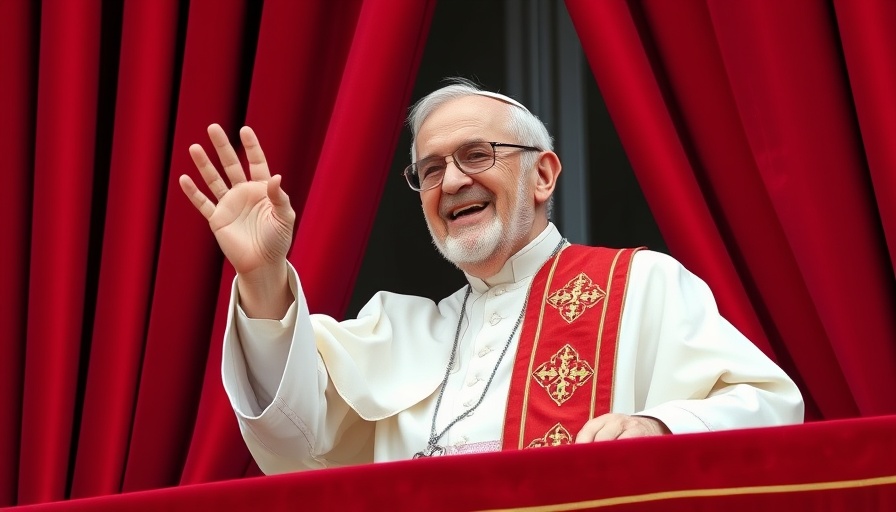
A Journey from Father Bob to Pope Leo XIV
The story of Robert Prevost's rise to become Pope Leo XIV is a testament to his unparalleled dedication to faith, community, and the art of diplomacy. The journey began in the mid-1990s during a wave of political turbulence in Peru, where Father Bob demonstrated remarkable courage in standing up to armed soldiers. This act of defiance showcased not just his deep commitment to his vocation but also a unique ability to navigate delicate situations with grace.
Encountering Challenges and Embracing Change
Prevost's early experiences equipped him to take on roles that required both courage and compassion. Faced with armed military forces attempting to conscript young seminarians, he asserted firmly that they were destined for priesthood, not the barracks. Such moments display his commitment to nurturing future generations of clerics even in the face of danger. This incident was crucial, illustrating how his pastoral instincts merged with political awareness.
The Pastoral Leadership Style of Leo XIV
Transitioning from a dedicated priest to a significant figure within the Vatican, Prevost's leadership style as Pope Leo XIV reflects a blend of humility, engagement, and practicality. Backed by extensive religious education and real-world experience in pastoral management, he is well-positioned to guide a church that is often grappling with modern challenges. His focus on short homilies, which resonate with the congregations, demonstrates a shift towards a more relatable form of spiritual guidance — making faith more accessible to diverse audiences.
A Global Perspective: The Impact of Pope Leo XIV
Pope Leo XIV’s calling echoes across continents, weaving through communities in Vatican City, Chicago, and Trujillo, Peru. His approach is characterized by genuine outreach to communities, blending the spiritual with the worldly. Prior to his papacy, his interactions with local clergy and community members laid a foundation for a globally inclusive church. His willingness to engage with and listen to diverse voices within the church demonstrates an understanding of the power of dialogue in fostering unity.
Future Predictions for the Catholic Church Under Pope Leo XIV
As the Catholic Church navigates through social changes and growing secularism, expectations are high for Pope Leo XIV’s papacy. Observers predict that his leadership could steer the church toward a more participatory model, engaging laity in decision-making processes. The church may also place increased emphasis on social justice, drawing lessons from Prevost’s experiences in conflict zones.
Confronting Misconceptions
Even as Pope Leo XIV embraces modernity, he faces challenges including myths about Church teachings and widespread skepticism among younger generations. Addressing misconceptions directly, through education and dialogue, can foster a more accurate understanding of the Catholic Church’s beliefs, bridging perceived gaps and inviting a new generation to embrace their faith.
Emotional Connections and Personal Anecdotes
Through personal stories such as that of Father Prevost standing against armed soldiers, the emotional depth of his character becomes evident. His experiences speak to the wider narrative of resilience, faith, and the divine calling that inspires many clerics in their journeys. By sharing these intimate moments, Pope Leo XIV can connect with believers on a deeper personal level—highlighting that his path is rooted in shared human experiences.
Inspiration from the Past
Pope Leo XIV carries a legacy built by predecessors who faced the test of their times. Learning from past popes' successes and failures can provide pathways toward crafting a relevant future for the church, emphasizing compassion and understanding in modern society. His papacy allows for the creation of a hopeful narrative that resonates with people in various walks of life.
As Pope Leo XIV steps into this pivotal role, his journey reminds us of the profound potential within faith leadership to inspire change, cultivate understanding, and build a more inclusive world. For those vested in the future of the Catholic Church and their communities, staying engaged with the evolving narratives of leadership can illuminate pathways toward mutual growth and spiritual enlightenment.
 Add Row
Add Row  Add
Add 




 Add Row
Add Row  Add
Add 

Write A Comment